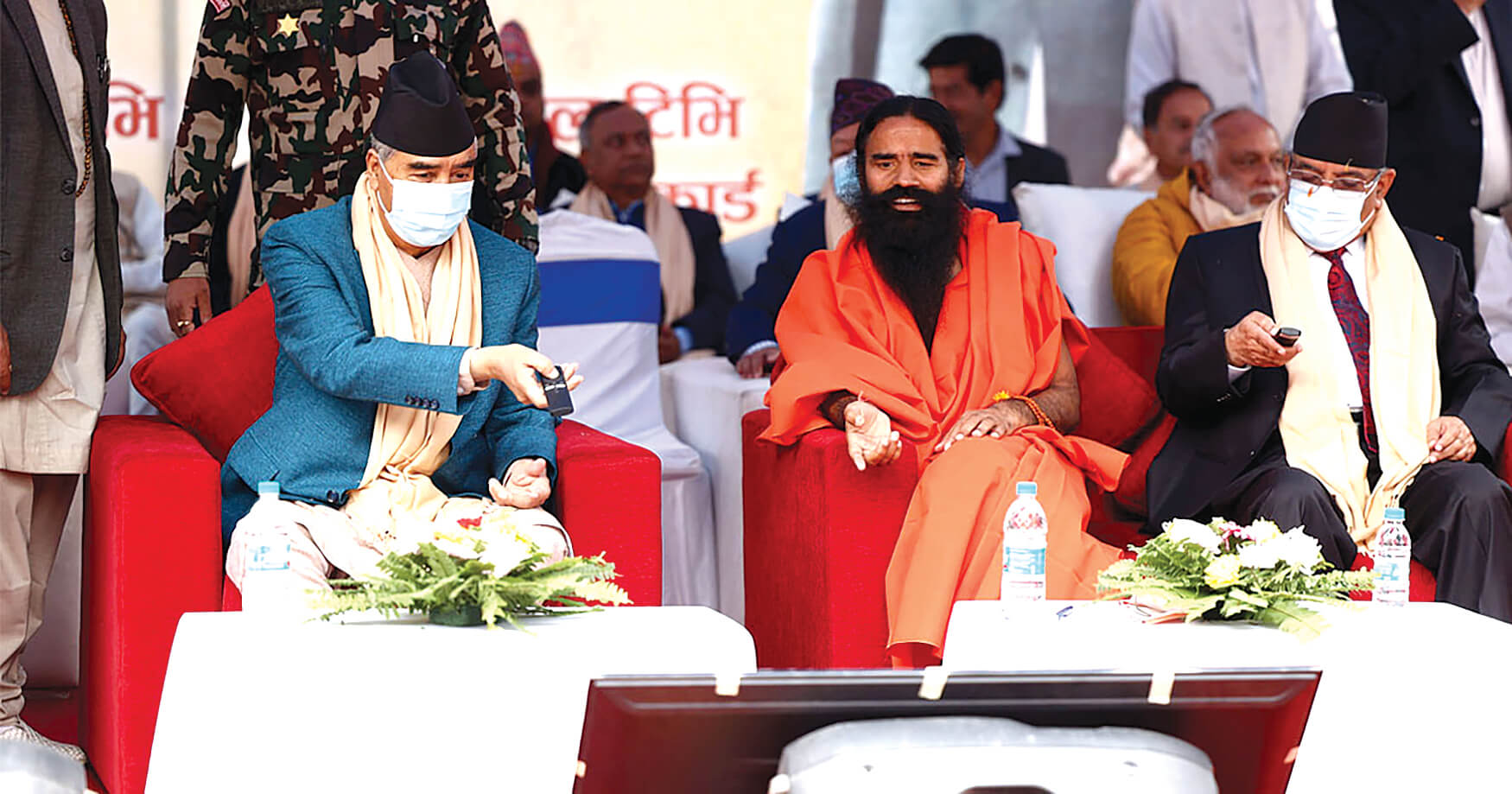Volatile Mix of Politics and Religion

The Election Commission has set local elections for May, with federal elections following early next year. Given the heated debate about federalism and secularism the polls will be a referendum on those two issues.
In 2017, Nepal held sub-national elections after 20 years. Those ward, municipal and provincial representatives were pushed into uncharted territory, and coped the best they could. The hope was that locally-elected leaders would demonstrate more accountability than their national-level counterparts.
Indeed, some ward and municipal chairs performed exceptionally well. But many mayors are contractors, and are involved in blatant malfeasance. Political devolution has decentralised corruption as well.
News reports about Bagmati Province’s bloated ministries as well as the provincial governments just being reflections of the power balance in Kathmandu have given federalism a bad name. Which is why some political leaders want federalism scrapped.
Local elections this year is a chance to set things right. All politics is local – or should be. And we have seen since 1990 in Nepal that decentralised political decision-making is the best way to govern.
However, there are indications the polls will be a dirty political game where politicians devoid of ideology stoke religious fervour to get votes. This is dangerous, it will polarise and destabilise Nepali society.
This requires vigilance from voters who must vet candidates and cast their ballots for those who are more likely to address their most urgent needs like health, education, jobs and a streamlined administration – and not fall for extremist slogans.
We need to make sure that the people at the local level, especially those who have been excluded till now in decision-making, benefit the most from federalism. Given Nepal’s diversity in ethnicity and religion, a prosperous and democratic society is not possible without the stability that secularism guarantees.
Going by the general conventions of the major parties over the last months, it looks like secularism, restoration of the monarchy and federalism will dominate the upcoming polls.
Rajendra Lingden’s resounding win over Kamal Thapa as the leader of the RPP means that the party will be even more aggressive in promoting the royal-Hindu line. Even self-proclaimed democratic and progressive parties that stood for alternative politics like Bibeksheel Sajha are falling back on religion and monarchy to gain popular votes.
Republicanism, federalism and secularism became the main pillars of the Constitution that was drafted after two elections following the People’s Movement of 2006. Remove any one of these three pillars and the country could be pushed back to instability.
Some of the very leaders who once played a key role in writing that Constitution, like Shashank Koirala and Shekhar Koirala of the ruling Nepali Congress (NC), are in favour of a Hindu state. The main opposition UML’s K P Oli has himself been dabbling in religion.
An eager gathering of former prime ministers at a recent reception for Indian guru Baba Ramdev in Kathmandu in November also showed that political leaders across the spectrum recognise the power of religion in vote mobilisation.
Much of this is due to the gravitational pull that India exerts on Nepal.
Narendra Modi’s Bharatiya Janata Party (BJP) has actively used Hindu nationalism to stay on in power, and he has made no secret of his desire for Nepal to revert being a Hindu state.
In Nepal, some leaders are deliberately bending the definition of ‘secularism’ to mean ‘anti-faith’ to disrupt Nepal’s long-standing religious harmony and tap the majoritarian vote bank.
In her article Shaping Secularism in Nepal on European Bulletin of Himalayan Research, Chiara Letizia says that secularism in Nepal will be determined by how the Hindu majority is addressed: ‘Nepal is a post-secular laboratory, where the state’s policy must walk a tightrope, upholding ‘absolute’ secular values such as equal citizenship, and yet balancing the Hindu majority tradition, Hindu fears, and the claims of minorities for social, political and religious recognition.’
Rajeev Bhargava, a political theorist who has studied India's secularism, suggests a principled stand for secularism in countries like India and Nepal which are ethnically, culturally and linguistically diverse. The state should give equal respect to all religions, but can also push universal values of tolerance and human rights.
The test of a true democracy is how well it treats its minorities. Following secularism in letter and spirit makes such tolerance possible, and having it enshrined in the Constitution is not enough. It should be followed in practice.
Indian historian Bipan Chandra in his 2008 book Communalism: A Primer analyses how the anti-secularism spread: ‘Communalists call themselves good nationalists and communalism as nationalism. Therefore, the good fight against communalism must be fought on the same ground of nationalism.’
To prevent Nepal from falling into the same trap and keep our democracy vibrant and inclusive, we must use upcoming elections to eschew parties that espouse majoritarianism, exclusion and division.
At the very least Nepal’s political leaders must adhere to values enshrined in the Constitution as their true ‘religion’.
Rabin Giri




